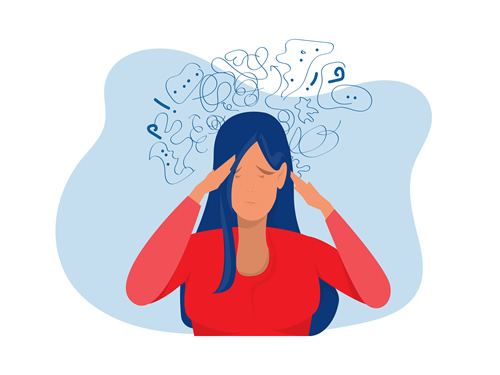It’s ADHD Awareness Month – attention deficit hyperactivity disorder, to give it its full name. The NHS defines it as a neurological disorder characterised by inattentiveness, hyperactivity and impulsiveness or a combination of all three.
People with ADHD may have a short attention-span, for example, or difficulties completing tasks or organising their time. Other possible symptoms include a tendency to fidget or act without thinking, and difficulty regulating emotions.
Henry Shelford is CEO and co-founder of the charity ADHD UK which was set-up last year and is run by people with the condition. “It’s estimated that about five per cent of the UK population has ADHD but only one per cent gets picked up,” he explains. “That’s a huge swathe of people going through life undiagnosed. People might wonder why they need a diagnosis at all if they’re coping – but that’s just it. They’re ‘coping’ when they could be excelling with the right help.”
People often realise they have ADHD following a big life-change which brings their difficulties into sharp-focus, he says. For youngsters, this might be starting reception or moving on to secondary school or university. For adults, the lack of structure after retiring or too many sleepless nights after having a baby, may suddenly make it difficult to deal with their daily demands.
ADHD is Much More Than Hyperactivity

It’s important for the rest of the population to understand that the condition is much more than just hyperactivity, Shelford says, but they also need to be sensitive about offering unsolicited advice. “People might hear about difficulties like procrastination or poor time-keeping and make suggestions. They’re being kind but neurotypical solutions won’t work for an ADHD brain so then people mistakenly believe that person isn’t trying.”
Medication or behavioural therapy can help, he continues, but it’s also useful for the person to gain a thorough understanding of themselves and what helps them manage their symptoms. “For example, I have ADHD myself and at home, I always dump the stuff I need every day in a single place so I know where it is. Any appointments have to be written on a calendar or I simply won’t remember them,” he points out. “Lots of people do these things, I know, but the difference is that someone with ADHD doesn’t have a fallback. If I don’t use these strategies, I can’t function.”
“People with ADHD need empathy and support,” Shelford concludes. “It affects every area of someone’s life. Statistics tell us that one-in-ten males with ADHD and one-in-four girls with the condition have tried to take their own life. We mustn’t minimise what people go through.”
Girls Internalise Their ADHD Symptoms

Many of us will already be familiar with the idea of the ‘typical’ ADHD candidate – a disruptive schoolboy, who plays the class clown, can’t stay in his chair and struggles to concentrate on his lessons. However, as with other special needs, experts are now starting to acknowledge that ADHD is just as likely to affect girls – though the symptoms often present in a very different way.
According to psychiatry-uk.com, girls with ADHD often have internal symptoms – for example, struggling to make decisions, finish projects and meet goals, and may not achieve as much as their peers despite being equally bright. They might also appear ‘chatty’ or ‘anxious’ to their classmates.
A Young Woman’s Experience of ADHD

Bryony is eighteen and recently received a diagnosis of ADHD. Though she had suffered with anxiety and low mood since she was very young, no-one suspected she had the condition as she was quiet and shy and did well at school. “I used to ‘zone-out’ a lot during lessons at primary school though I found the work easy so was able to keep up,” she explains. “I also felt I had to try really hard to control myself and fit-in so when I got home from school, all these emotions would come flooding out of me and I would have a kind of meltdown. It was exhausting!”
At secondary school, she was continually late, despite endless detentions, and would often stay awake till the small hours to complete assignments for the next day that she’d had weeks to prepare. With the increased workload of studying for A Levels, these difficulties became overwhelming, leading to a loss of confidence and low self-esteem. Researching her symptoms online, she found they matched the description of ADHD, leading her to seek a diagnosis.
“It was a relief to find out why I’d been having all these problems,” Bryony admits. “I can now find ways to help myself. I’m trying medication and speaking to a counsellor so I am hopeful that maybe next year, I’ll be able to go to university.”




